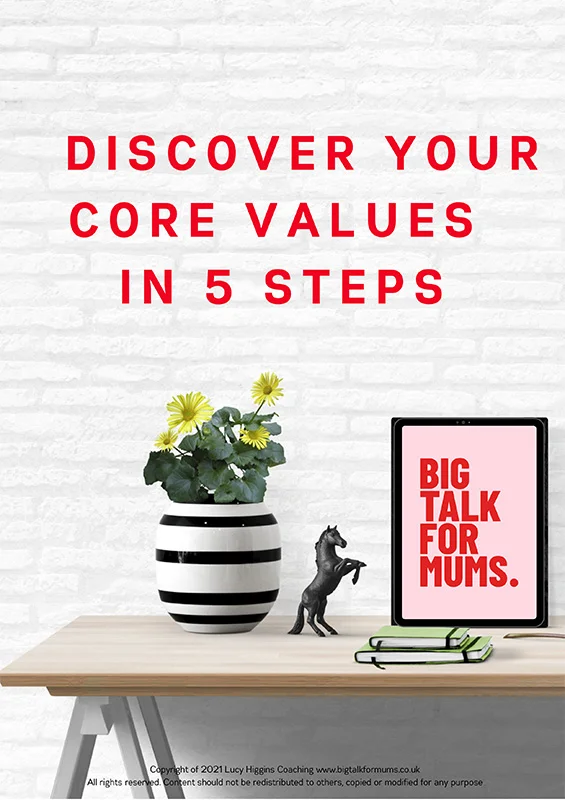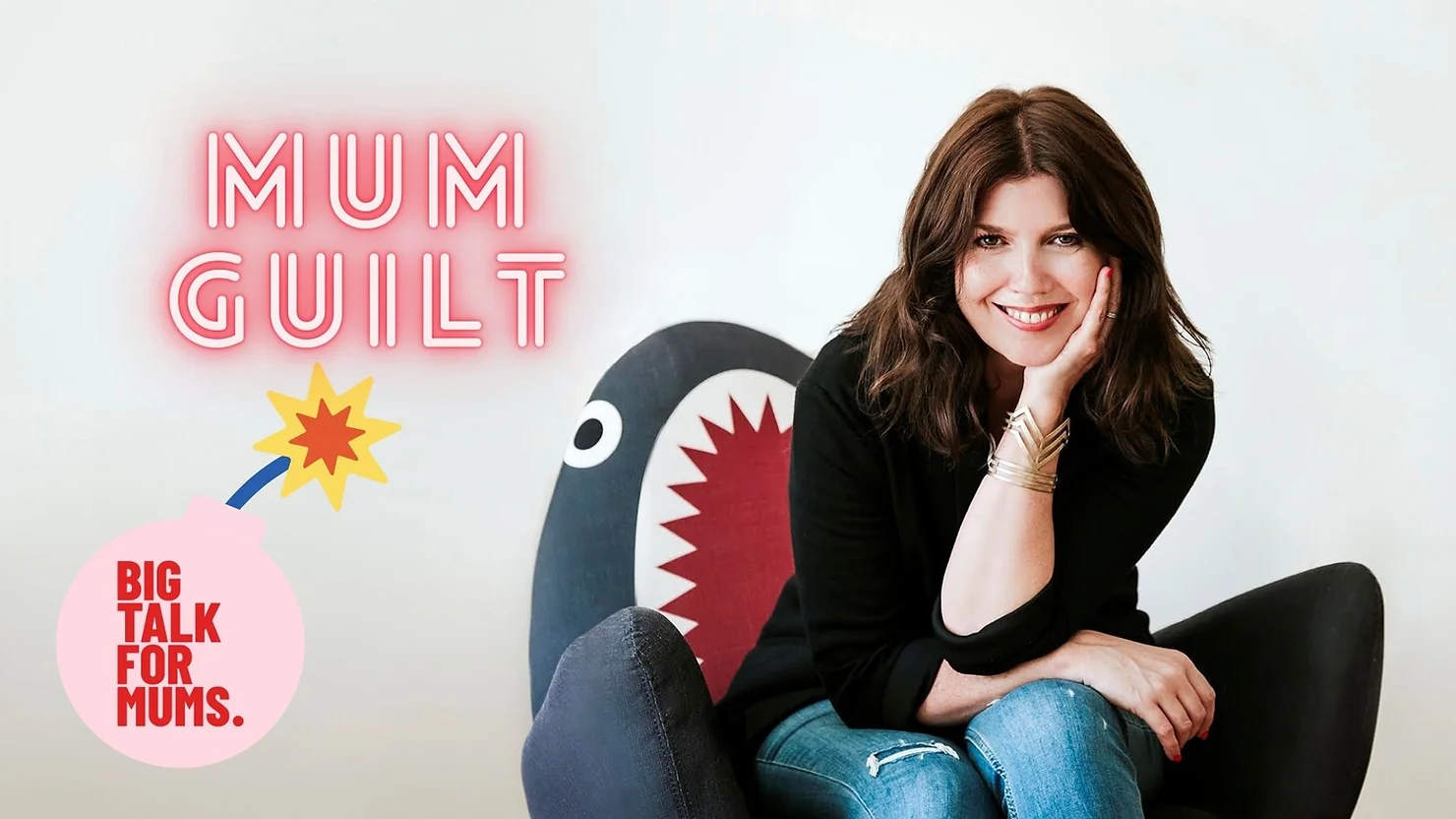Did you know that mothers who experience guilt for not meeting parenting expectations also experience lower self efficacy, higher levels of stress and higher levels of anxiety? (Henderson 2015).
Here’s how to ditch mum guilt for good and protect your mental health…
1) Children are their happiest when their mothers feel less guilty and stressed NOT when their mothers spend more time with them (Green 2015)
Most of the mothers I work with, whether in paid work or not, say they feel guilty for not spending enough time with their children. But research shows that the quality of the time we spend with our children has more of a positive impact on their wellbeing than the quantity.
A study by Winnicott (1950) found that meeting the child’s needs just 30% of the time is sufficient to create happy, well attached children. And it boosts their resilience.
So if you feel guilty about prioritising your own wellbeing, remember that your ability to be warm, ‘in the moment’ and emotionally available for your child when you are with them is most important.
2) Maternal guilt stems from a fear of judgement and mothers comparing themselves to idealized versions of motherhood (Liss et al 2012 and Brock 2017)
The process of becoming a mother has a name – matrescence (Raphael 1973). Just like adolescence, the changes are physical, emotional, psychological, biological, spiritual and social.
So it’s no wonder that when it feels like every part of our internal and external world has changed, we cling to society’s rules of what it means to be a good mother. We seek advice from our parents, social media, parenting ‘experts’, the media, friends, community groups, doctors, anyone who can tell us what we ‘should’ be doing, thinking and feeling – to help us feel more in control. And we judge our mothering and others’ mothering according to these expectations.
Here’s a taster of some of the rules according to the Perfect Mother Myth (Brock 2021):
- I should sacrifice all my needs for my family
- I should be a better wife/ partner/ (have a partner)
- I shouldn’t feel angry
- I should be happy, have more patience and be more grateful
- I should be able to meet all my child’s needs
- I should want ‘more’ than being a mother
- I should financially contribute more to my family
- I shouldn’t work so much/ focus on my career
- I should always offer my full presence to my child
3) The most common regret of the dying is “I wish I’d had the courage to live a life true to myself, not the life others expected of me. (Bronnie Ware, Top 5 Regrets of the Dying)
If this fills you with fear, take a moment to reflect on how you are taking on the demands of the perfect mother myth.
How are your thoughts, feelings, behaviours and decisions influenced by the fear of being judged? A fear of not being good enough? Of being ostracised?
How are your thoughts, feelings, behaviours and decisions influenced by your personal values – what’s important to YOU.
If you would like to clarify your core values, you can download my free ‘Discover Your Core Values in 5 Steps’ workbook.
Next time you feel guilty, pause and ask yourself, where is this coming from? The Perfect Mother Myth or my core values?
This article was written by Lucy Higgins, one of our partner coaches. You can find out more about Lucy on her coach profile page: www.careeringintomotherhood.com/lucy-higgins
June 24, 2022


